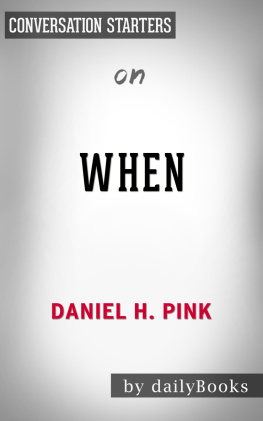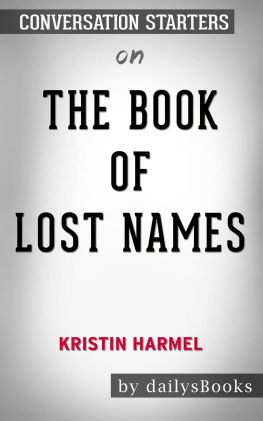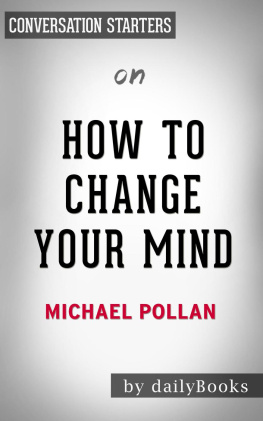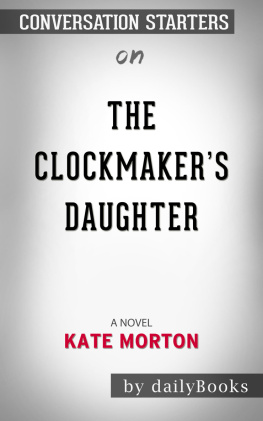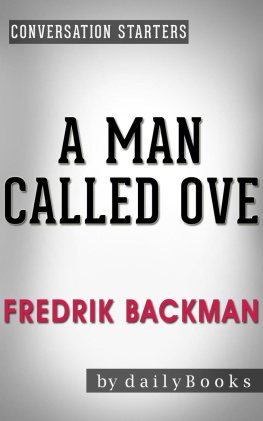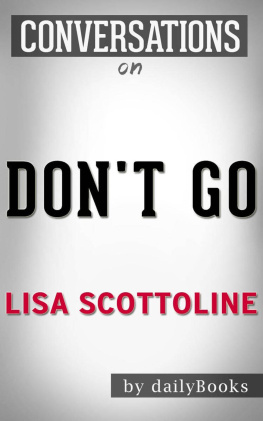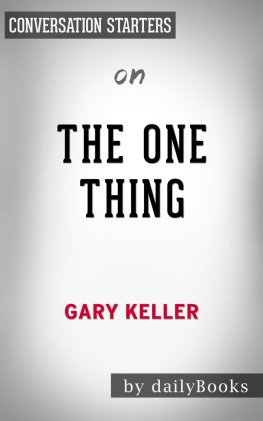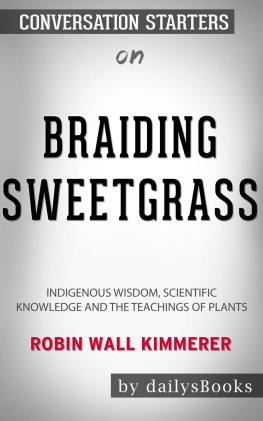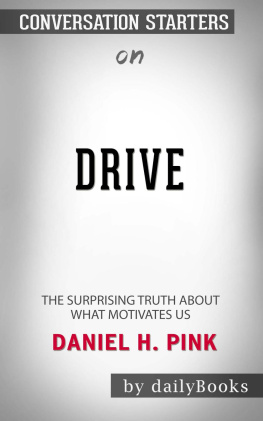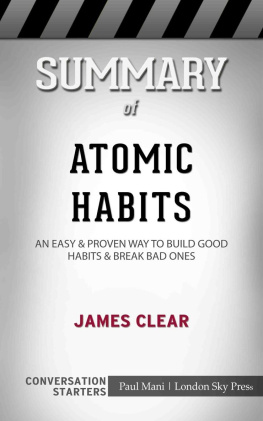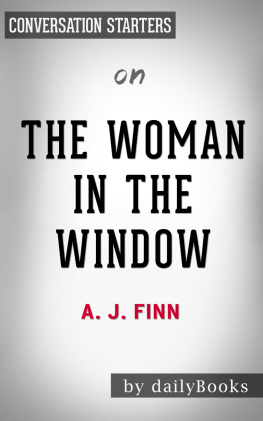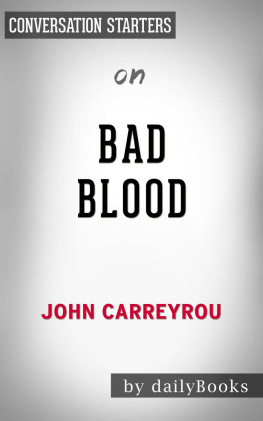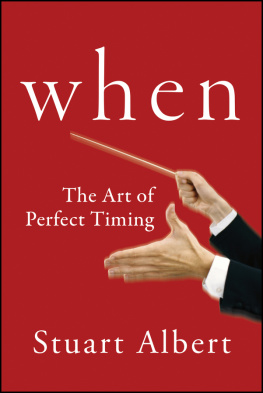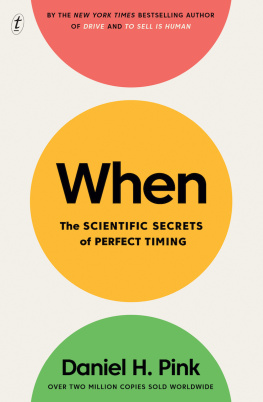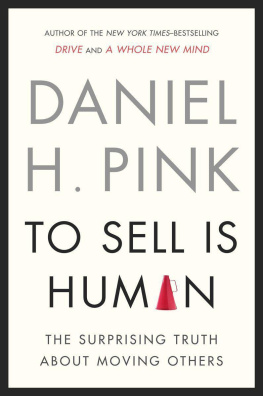Conversation Starters
for
Daniel H. Pinks
When: The Scientific Secrets of Perfect Timing
By dailyBooks
Please Note: This is an unofficial conversation starters guide. If you have not yet read the original work or would like to read it again, get the book here.
Copyright 2017 by dailyBooks. All Rights Reserved.
First Published in the United States of America 2017
Disclaimer / Terms of Use: Product names, logos, brands, and other trademarks featured or referred to within this publication are the property of their respective trademark holders and are not affiliated with dailyBooks. The publisher and author make no representations or warranties with respect to the accuracy or completeness of these contents and disclaim all warranties such as warranties of fitness for a particular purpose. This guide is unofficial and unauthorized. It is not authorized, approved, licensed, or endorsed by the original book's author or publisher and any of their licensees or affiliates.
No part of this publication may be reproduced or retransmitted, electronic or mechanical, without the written permission of the publisher.
We hope you enjoy this complementary guide from dailyBooks . We aim to provide quality, thought provoking material to assist in your discovery and discussions on some of todays favorite books.
Tips for Using dailyBooks Conversation Starters:
EVERY GOOD BOOK CONTAINS A WORLD FAR DEEPER THAN the surface of its pages. The characters and their world come alive through the words on the pages, yet the characters and its world still live on. Questions herein are designed to bring us beneath the surface of the page and invite us into the world that lives on. These questions can be used to:
- Foster a deeper understanding of the book
- Promote an atmosphere of discussion for groups
- Assist in the study of the book, either individually or corporately
- Explore unseen realms of the book as never seen before
About Us:
THROUGH YEARS OF EXPERIENCE AND FIELD EXPERTISE, from newspaper featured book clubs to local library chapters, dailyBooks can bring your book discussion to life. Host your book party as we discuss some of todays most widely read books.
Bonus Download:
Get Bonus Books with Any Purchase of Conversation Starters.
Add spice to any conversation
Never run out of things to say
Spend time with those you love
Click below to access your bonus now!

100% Secure & Fast Delivery to Your Inbox

Table of Contents
Introducing When: The Scientific Secrets of Perfect Timing
TIME IS ELUSIVE, YET IT IS SOMETHING THAT each one of us has in equal amounts; how is it then, that some seem to garner better results with their time than others? Bestselling author Daniel H. Pink attempts to answer this question in his newest book, When: The Scientific Secrets of Perfect Timing. While the books genre is classified as self-help, Pink considers it more of a when-to rather than a how-to book. Backed by scientific research findings, the book divulges the hidden secrets of how time affects our mood, motivation, and behavior. Following each chapter, Pink includes a Time Hackers Handbook, which includes tips and suggestions for applying this newfound information to our daily routines.
Pink begins with a brief introduction to the history of time, and reminds readers that time is essentially a human construct; seconds, minutes, and hours only mean what they do to us because of the definitions we have applied to them. Though time is a concept of the human mind, it is a concept that results from the movement of the earth, which gives us a period of daylight and a period of darkness. Time itself might be overlooked as it zips by us without halt, but it is arguably one of the most powerful influences on the human experience. In fact, Pink notes that scientists have been studying the effect of time on the human brain for over one hundred years. Referencing the results of such scientific studies, Pink explains how this information can be applied to nearly every aspect of our daily lives.
As the sun appears to rise and set with each day, our biological clocks follow a consistent daily pattern. Pink cites a research study performed by Michael Macy and Scott Golder that compared tweets from different times of day to measure peoples emotions. What they found, Pink explains, is that people are generally happier in the mornings, experience a downward mood swing in the afternoon, and perk back up again in the evening. Whats more is that this pattern of high-low-high showed consistency across the gender, race, religion, and geographic spectrums. Pink explains that each one of us fit into one of three basic chronotypes: Larks (the early birds), Owls (those who naturally thrive in evenings), and Third Birds (the rest of us). Our biological clocks, or circadian rhythm, may not be entirely in sync with each others, but the basic pattern remains the same.
The effect of time on our daily lives is further explored with the help of studies that confirm this high-low-high pattern of our biological clocks. For example, Pink refers to a study on the success rate of business calls at differing times of day, which shows more success with morning calls than those placed in the afternoon. Likewise, it appears that more surgical slip-ups occur during afternoon hours than in the morning, and students generally do better with math classes held in the morning versus those held in the afternoon. Pink explains that our minds are sharper in the morning and more capable of thwarting off distractions than they are in the afternoon. In fact, Pink labels this mid-day slump the Bermuda Triangles of our days.
Understanding the pattern of our biological clocks and how it affects our moods and behavior can help us better plan and manage our time. Pink acknowledges that we dont always have complete control of our daily schedules and offers tips for navigating through the afternoon slumps. For instance, a study in Denmark revealed that students scored higher on tests administered in the morning compared to those who took the same test in the afternoon. However, when afternoon tests followed a break, such as recess, the students scores were comparable to the morning results. So, while afternoons may pose a challenge for most of us, there are things we can do to turn the least productive part of the day into time well spent.
From scheduling important meetings, appointments, and calls to planning vacations, surgeries, and special events, were always deciding when to do this or when to do that. Every day we choose how to spend our time, and for many, it seems as if its always slipping away. However, the key to successful time management may be found in the hidden science of timing. Daniel H. Pinks When: The Scientific Secrets of Perfect Timing offers tips for harnessing the power of time in our own lives by referencing fascinating research studies that emphasize just how important timing is to the human experience.
Introducing the Author
DANIEL H. PINK WAS BORN ON THE EAST COAST in 1964 but grew up in a small town in Ohio where he graduated high school in 1982. He then attended Northwestern University, where he completed his Bachelor of Arts and graduated with honors. He continued his education at Yale Law School, and though he received his Juris Doctorate, he did not go on to practice law. For a time, Pink worked in politics and previously held the position of chief speechwriter for Vice President Al Gore.
Next page
